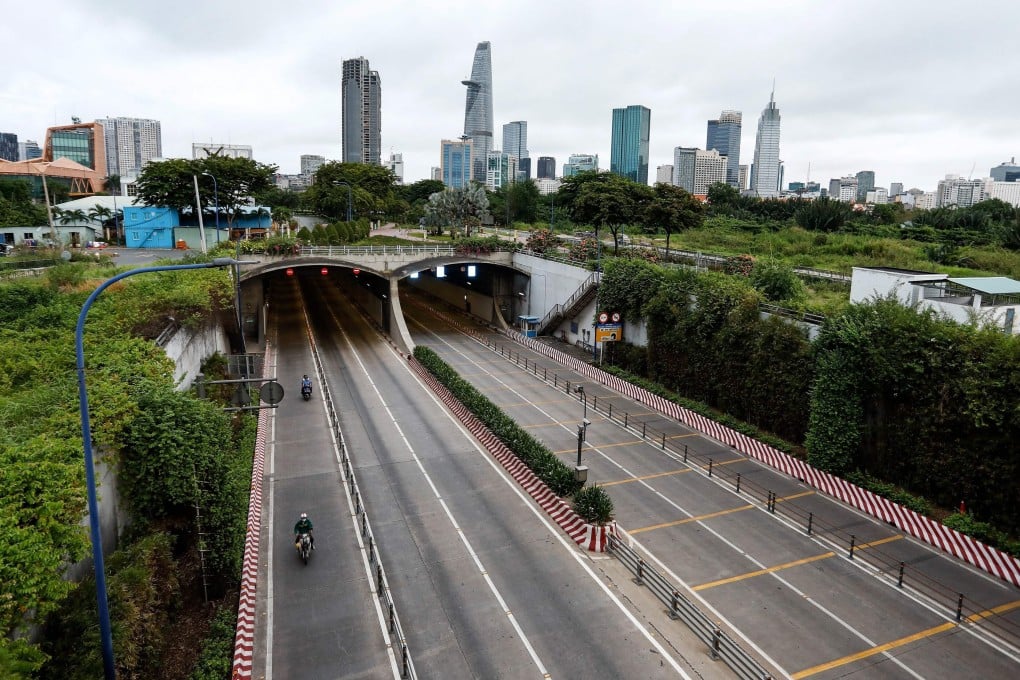As Vietnam’s coronavirus surge continues, lockdowns take their toll on factory output, small businesses
- Vietnam’s Covid-19 hotspot Ho Chi Minh City has twice extended its lockdown, hitting manufacturers trying to export items such as clothing
- An economist said the fourth wave is more devastating for labour migrants, informal workers and those in service industries who cannot work from home

“This time around the situation is very serious,” 22-year-old Nha said. “Everyone is trying so that the outbreak in Saigon could soon come to an end.”
Ho Chi Minh City has emerged as Vietnam’s virus hotspot as the country battles a steep rise in cases – from less than 3,000 infections on April 27 to 114,260 as of Tuesday. By comparison, neighbouring China, where the virus was first detected, has reported 92,065 cases.
The city has twice extended a lockdown that until August 1 only allows residents to leave home for necessities such as food or to go to work at businesses that have been granted permission to remain open. A curfew has also been imposed with people forbidden to leave home between 6pm and 6am. At least one-third of Vietnam’s 63 localities have imposed restrictions on movements.
Residents have also faced unprecedented police checkpoints set up to monitor and curb their movements as the government ramps up testing. The authorities are also trying to relieve pressure on the overwhelmed hospital system by running a pilot programme that allows asymptomatic patients who have tested negative at least twice and have a low viral load to quarantine and be monitored at home instead of in a state-sanctioned facility. The pilot also includes close contacts of identified cases.